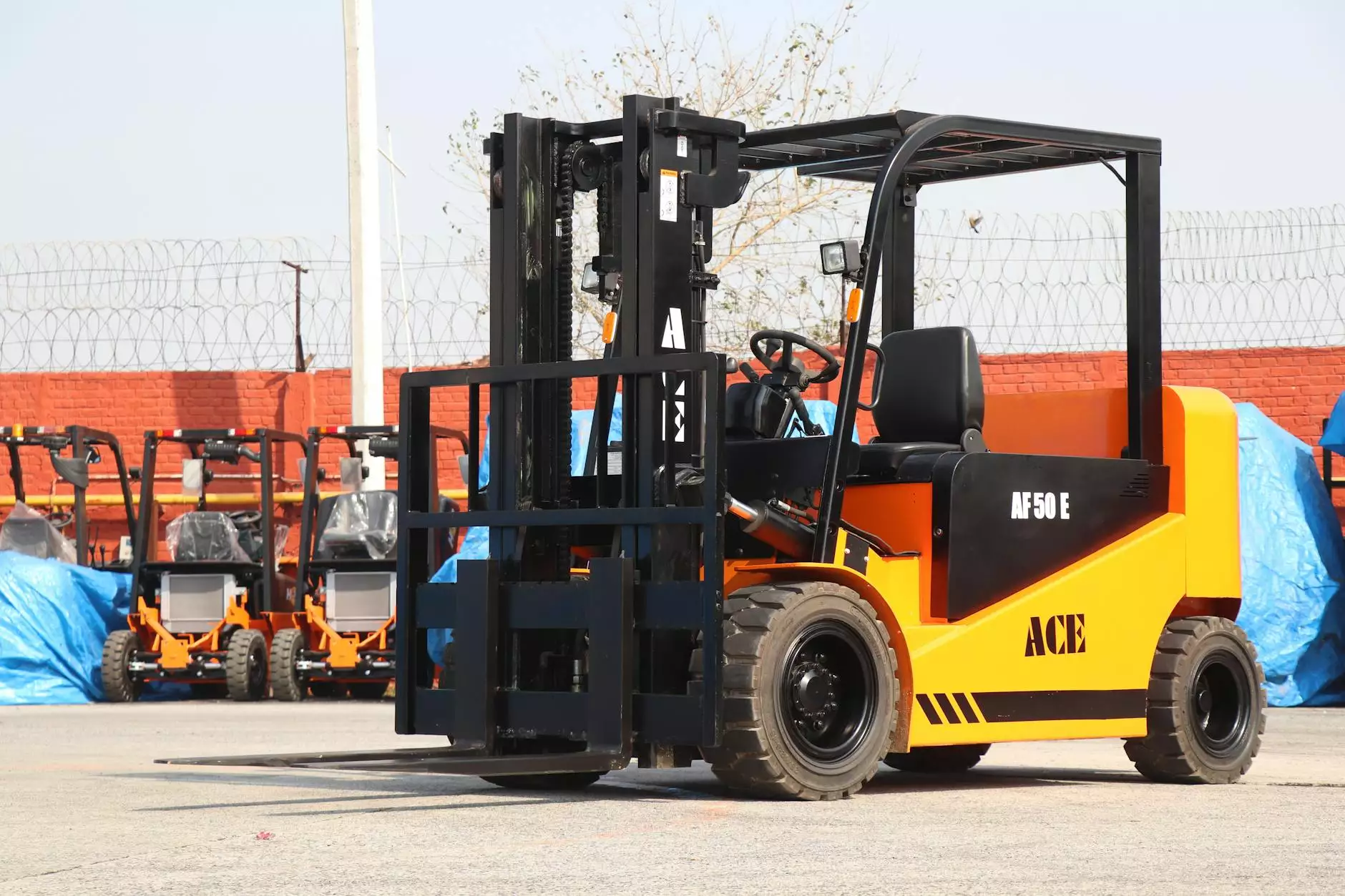Heavy Weight Shipping Solutions: The Ultimate Guide to Efficient and Secure Heavy Cargo Transportation

In the ever-evolving landscape of logistics and freight management, heavy weight shipping has become a critical component for industries ranging from manufacturing and construction to automotive and aerospace. Handling and transporting substantial cargo requires specialized expertise, state-of-the-art equipment, and meticulous planning to ensure safety, efficiency, and cost-effectiveness. Whether you're managing shipping centers or coordinating vehicle shipping of large, heavy machinery, understanding the nuances of heavy weight shipping can dramatically enhance your operational success.
Understanding Heavy Weight Shipping: An Industry Overview
Heavy weight shipping involves the transportation of cargo that exceeds standard weight and size limits imposed by conventional freight services. This category encompasses a broad spectrum of shipments, including industrial equipment, large vehicles, construction materials, and specialized machinery. The complexity of moving such heavy loads demands a tailored approach, integrating advanced logistics strategies, specialized equipment, and compliance with safety and regulatory standards.
The Significance of Heavy Weight Shipping in Modern Business
Today, heavy weight shipping is the backbone of global commerce and industrial development. It enables manufacturers to distribute large-scale components across vast distances, supports infrastructure projects, and facilitates the movement of oversized vehicles. The growth of industries such as renewable energy (e.g., wind turbines), aerospace, and heavy machinery manufacturing underscores the critical role of efficient heavy cargo logistics.
Companies like laxfreight.com specialize in providing end-to-end solutions that streamline heavy weight shipping through innovative approaches, reliable equipment, and expert personnel. Their services underpin the success of numerous industrial and commercial ventures by ensuring cargo arrives safely, on time, and within budget.
Core Components of Heavy Weight Shipping Services
1. Customized Logistics Planning
Precise planning lays the foundation for successful heavy cargo transportation. This involves detailed route analysis, risk assessment, permits acquisition, and coordination with local authorities. Tailored logistics plans consider factors such as load weight, dimensions, transportation mode, and delivery deadlines to optimize the entire process.
2. Specialized Equipment and Vehicles
Moving heavy loads necessitates advanced transportation equipment like flatbed trailers, lowboy trailers, super-load carriers, and heavy-duty cranes. These devices are designed to handle extreme weights while providing stability and safety during transit. Regular inspection and maintenance of equipment are vital to prevent accidents and delays.
3. Regulatory Compliance and Permitting
Heavy cargo often requires permits and adherence to strict regulatory standards depending on the jurisdiction. This involves securing oversize/overweight permits, complying with federal and local transportation laws, and coordinating with law enforcement agencies for road escorts or pilot vehicles when necessary.
4. Safety and Risk Management
Ensuring safety is paramount in heavy weight shipping. This includes thorough risk assessments, proper load securing, driver training, and comprehensive insurance coverage. Implementing safety protocols minimizes accident risks and protects personnel, cargo, and infrastructure.
Heavy Weight Shipping for Shipping Centers: Streamlining Heavy Cargo Logistics
Shipping centers play a pivotal role in managing heavy weight shipping operations. They serve as hubs for consolidating, scheduling, and distributing large cargo efficiently. The integration of advanced technology such as real-time tracking, automation, and digital documentation has revolutionized shipping center operations.
- Inventory Management: Effective management of heavy goods inventory ensures accurate sorting and timely dispatching.
- Dispatch Optimization: Optimized scheduling reduces delays, fuel consumption, and operational costs.
- Enhanced Security: Monitoring and security protocols protect valuable heavy shipments from theft or damage.
- Customer Communication: Transparent tracking and updates build trust and improve client satisfaction.
Vehicle Shipping of Heavy and Oversized Vehicles
Transporting large vehicles, such as construction machinery, buses, or specialty vehicles, epitomizes the challenges and solutions inherent in heavy weight shipping. Specialized vehicle shipping services are designed to cope with the unique dimensions and weight considerations of such cargo.
These services include:
- Route Planning and Permits: Calculating the best route to avoid obstacles like low bridges or narrow roads and securing necessary permits.
- Heavy-Duty Trailers: Using multi-axle trailers equipped to distribute weight evenly and provide stability.
- Escort Vehicles: Deploying law enforcement or escort vehicles to ensure safety during transit through congested or sensitive areas.
- Loading and Unloading Expertise: Skilled personnel utilizing cranes and other equipment to ensure safe loading and unloading.
- Insurance and Liability: Comprehensive coverage to mitigate risks associated with heavy vehicle shipping.
The ultimate goal is to deliver vehicles intact, on schedule, and with minimal disruption to public or private infrastructure.
Advantages of Choosing a Professional Heavy Weight Shipping Provider
Partnering with a reputable heavy weight shipping company offers numerous benefits:
- Expertise and Experience: Skilled teams familiar with complex logistics scenarios.
- Advanced Equipment: Access to cutting-edge trailers, cranes, and safety gear.
- Regulatory Knowledge: Up-to-date understanding of permits, routes, and legal requirements.
- Risk Mitigation: Robust safety measures and insurance options reduce liabilities.
- Cost Efficiency: Optimized routes and operations lower overall expenses.
- Timely Delivery: Focused planning minimizes delays and ensures punctuality.
Key Considerations When Planning Your Heavy Weight Shipping Project
To maximize the effectiveness of your heavy weight shipping projects, consider these critical factors:
- Load Assessment: Accurate weight and dimension measurements are crucial to select appropriate transportation equipment.
- Route Analysis: Evaluating terrain, infrastructure, and potential obstacles is vital for safe transit.
- Permitting Requirements: Early engagement with authorities helps secure necessary permits without delays.
- Timing and Scheduling: Coordinating shipments during optimal times reduces interference with public traffic and infrastructure.
- Budget Planning: Understanding the full scope—including permits, equipment, labor, and contingencies—ensures accurate budgeting.
- Risk Management: Developing contingency plans for unforeseen issues like weather or road closures safeguards your investment.
Innovations and Future Trends in Heavy Weight Shipping
The field of heavy weight shipping continues to evolve with technological advancements and industry innovations:
- Automation and AI: Smart route optimization and load monitoring enhance safety and efficiency.
- Modular Equipment: Versatile trailers and cranes that can be adapted to different load configurations.
- Real-Time Tracking: GPS and IoT devices provide continuous visibility of shipments, improving transparency.
- Green Logistics: Adoption of environmentally friendly transportation options reduces carbon footprint.
- Enhanced Safety Protocols: Integration of advanced safety systems minimizes accidents and damages.
Conclusion: Why Heavy Weight Shipping is a Strategic Asset for Your Business
In today's highly competitive and interconnected market, heavy weight shipping is not just a logistical necessity but a strategic advantage. It enables companies to expand their reach, improve supply chain resilience, and execute large-scale projects with confidence. The right partner, equipped with expertise, cutting-edge technology, and a comprehensive understanding of industry regulations—such as laxfreight.com—can elevate your heavy cargo operations to new heights of efficiency and reliability.
Embracing innovative solutions and meticulous planning will ensure your heavy cargo transportation is safe, cost-effective, and aligned with your long-term business objectives. Whether it's shipping oversized machinery or managing complex logistics at shipping centers, mastering the art of heavy weight shipping positions your enterprise ahead of the competition and opens new avenues for growth.
Contact Us for Expert Heavy Weight Shipping Solutions
Ready to optimize your heavy cargo logistics? Contact laxfreight.com today for tailored heavy weight shipping solutions that meet your specific needs. Our team of industry experts is dedicated to delivering excellence and ensuring your cargo arrives safely, on time, every time.









